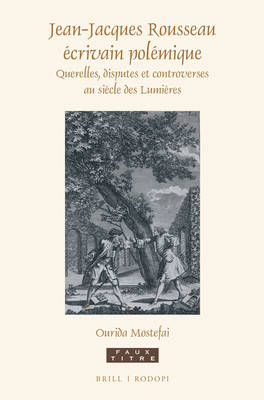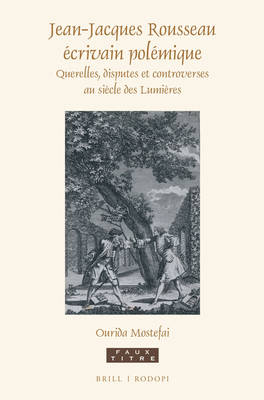
- Afhalen na 1 uur in een winkel met voorraad
- Gratis thuislevering in België vanaf € 30
- Ruim aanbod met 7 miljoen producten
- Afhalen na 1 uur in een winkel met voorraad
- Gratis thuislevering in België vanaf € 30
- Ruim aanbod met 7 miljoen producten
Zoeken
€ 118,45
+ 236 punten
Omschrijving
Jean-Jacques Rousseau écrivain polémique analyse le rôle, la force et le retentissement des conflits autour des oeuvres et de la personne de Jean-Jacques Rousseau. L'examen de ces querelles révèle un autre Rousseau: un écrivain polémique, auteur de différends.
Jean-Jacques Rousseau écrivain polémique analyzes the ways in which Rousseau's career was constructed in a constant engagement with the practice of polemics and refutation in the fields of politics, religion, and philosophy.
Jean-Jacques Rousseau écrivain polémique analyzes the ways in which Rousseau's career was constructed in a constant engagement with the practice of polemics and refutation in the fields of politics, religion, and philosophy.
Specificaties
Betrokkenen
- Auteur(s):
- Uitgeverij:
Inhoud
- Aantal bladzijden:
- 202
- Taal:
- Frans
- Reeks:
- Reeksnummer:
- nr. 407
Eigenschappen
- Productcode (EAN):
- 9789004308626
- Verschijningsdatum:
- 11/02/2016
- Uitvoering:
- Paperback
- Formaat:
- Trade paperback (VS)
- Afmetingen:
- 155 mm x 234 mm
- Gewicht:
- 317 g

Alleen bij Standaard Boekhandel
+ 236 punten op je klantenkaart van Standaard Boekhandel
Beoordelingen
We publiceren alleen reviews die voldoen aan de voorwaarden voor reviews. Bekijk onze voorwaarden voor reviews.








